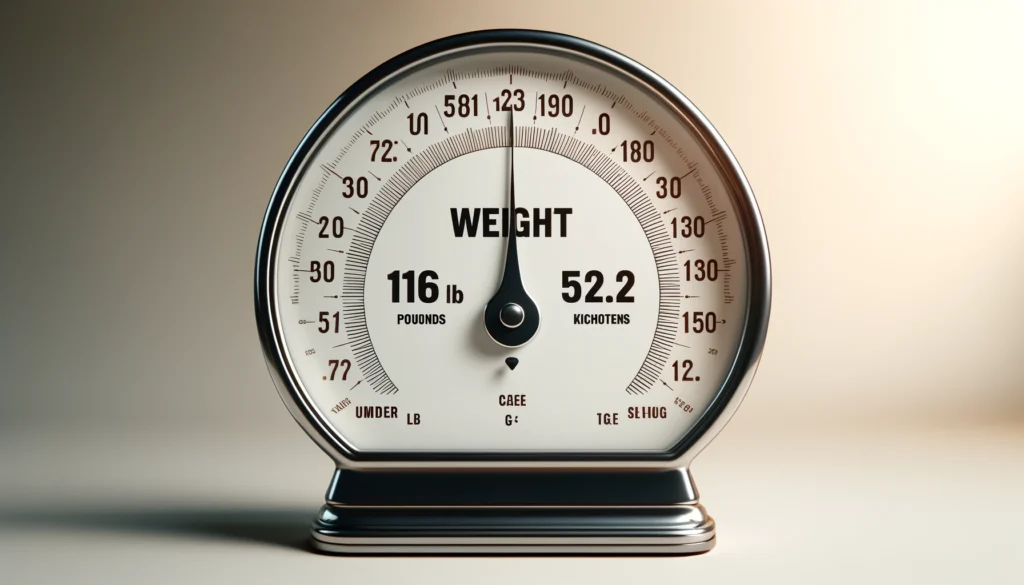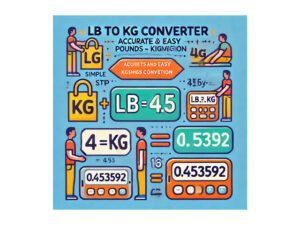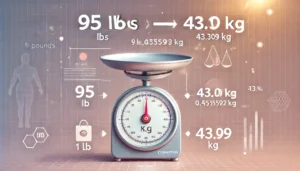In a world where metric and imperial systems coexist, converting measurements becomes crucial, especially in global communication. One of the most frequently searched conversions is “116 pounds in kg.” Whether you’re shipping a package, planning a diet, or just solving a math problem, understanding this conversion can be essential.
Understanding the Basics of Weight Conversion
Weight is commonly measured in pounds (lbs) in countries like the United States, while kilograms (kg) are used in most other parts of the world. The conversion formula is simple:
1 pound = 0.453592 kilograms
To convert pounds to kilograms, multiply the weight in pounds by this conversion factor.
The Exact Conversion: 116 Pounds in KG
Using the formula:
116 pounds × 0.453592 = 52.616672 kilograms
So, 116 pounds is approximately 52.62 kilograms when rounded to two decimal places. This precise value is often required for documentation, travel, and official health reports.
Why Knowing 116 Pounds in KG Is Important
There are numerous reasons you might need to convert 116 pounds to kilograms. Here are a few scenarios:
- Traveling abroad: Airlines in many countries state luggage limits in kilograms.
- Health and fitness: Most global fitness apps and gym equipment use the metric system.
- Shipping internationally: Postal services often list package weight in kilograms.
Real-Life Examples for Better Understanding
Consider someone who weighs 116 pounds and is trying to track their health in a country that uses the metric system. Knowing that this is approximately 52.62 kg helps them understand their progress accurately on medical and fitness platforms.
Alternatively, if you’re an online seller shipping products to Europe, and your package weighs 116 pounds, converting that to kilograms is essential for calculating shipping costs accurately.
Avoiding Common Mistakes
Many online tools round off weights too early in the calculation. To ensure precision, it is best to:
- Convert using the exact factor (0.453592)
- Round only the final answer
- Use decimal rather than fractional rounding unless a specific format is needed
Also, remember not to confuse pounds-force (lbf) with pounds-mass (lbm). For everyday use, pounds usually refer to mass, which aligns with kilograms.
Tips for Using Weight Conversions Effectively
Transitioning between metric and imperial measurements doesn’t have to be difficult. Here are some tips:
- Use reliable online converters
- Memorize key conversions (e.g., 1 kg ≈ 2.2 lbs)
- Use mobile apps that support both systems
- Always double-check when accuracy is vital
Moreover, in academic or professional contexts, clearly stating both units (e.g., 116 lbs (52.62 kg)) can avoid misunderstandings.
How Conversion Helps with Clarity
Including both pounds and kilograms on websites, nutritional labels, and product descriptions boosts clarity for international audiences. This simple adjustment improves user experience and promotes transparency. As a result, businesses gain credibility and reach a broader customer base.
Summary
Converting 116 pounds to kilograms results in 52.62 kg. This knowledge, while straightforward, proves essential across various domains—health, travel, commerce, and education. By understanding the logic and context behind it, one can apply this conversion effectively in real-life situations.





